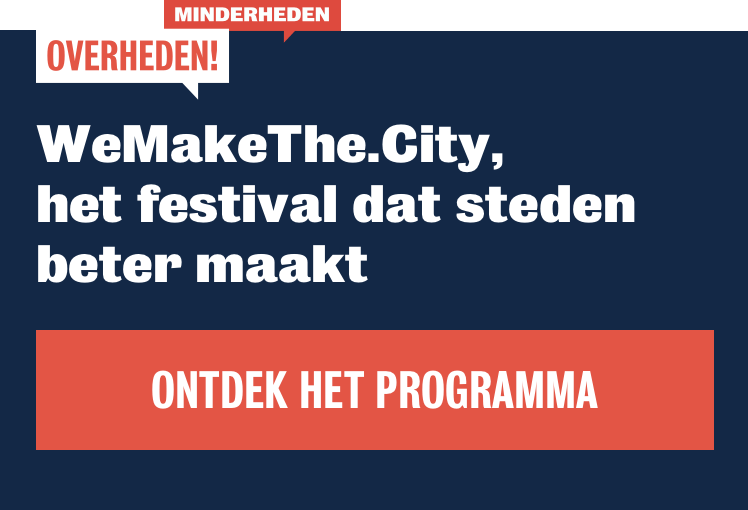Amsterdam is diverse, but how diverse are we? In order to put our thoughts into practice, we welcome everyone in the house and garden of the Goethe-Institut Amsterdam. In the hidden beauty of this historical place, you will get the chance to become more inclusive, showing a free space as an example of what the city should be.
In the city of Amsterdam, theoretical questions of cultural identity seem obsolete when walking its streets. One thing becomes clear at once: the city and its people have put theory into practice. Diversity is not an empty word but the very spirit which inspires the city from within. An open mindset, free of prejudice and limiting borders is inherent to the city’s social fabric and its actors, the citizens of Amsterdam.
We know Amsterdam is diverse, but how diverse are we? In order to put our thoughts into practice, we welcome everyone to the house and garden of the Goethe-Institut Amsterdam/ In the hidden beauty of this historical place, you will get the chance to become more inclusive, showing a free space as an example of what the city should be.
During the day artists, talks and presentations are scheduled, with local and international artists who think about topics of freedom, constructions of cultural identity and the challenge of truly sharing experience and perspective in order to embrace diversity as enrichment, and not as a threat. The presented works of the artists pose the question of how to intervene and promote an understanding of the city that is not static but thrives from its potential and dynamic reality of different cultures growing and building a home together whilst caring for each other.
The Italian artist duo Bianco-Valente and urban planner Fabio Landolfo developed an artistic intervention from an outsider perspective whilst exploring Amsterdam during their residencies here. Fascinated by the duality of body and soul, Bianco-Valente’s work deals with science, astrology and literature. In videos and interactive installations, they explore linguistic, spatial and social relationships and processes. They will present their artistic work consisting of a collage of flags and a cinematic intervention about the state and practice of diversity in Amsterdam.
Yara Said is a Syrian visual artist based in the Netherlands. She received her education at the Faculty of Fine Arts of the University of Damascus and is now enrolled in the Fine Art Department at the Sandberg Institute. As a result of personal experience, she is aiming to connect art with social development. By immersing herself in disciplines such as politics, psychology, sociology, and theology, she endeavours to pinpoint the position of artists in society and the perception of that same society on artists.
With this goal in mind, the Salwa Foundation was established, initiated by Yara. Salwa is a platform for artists, designers and creative thinkers who want to study or work in the Netherlands and are looking for support in finding their way and building their network. They offer practical insight into other professionals’ creative career paths and guidance in creating or reconstructing a professional portfolio. Named after Yara’s grandmother, Salwa means ‘consolation’, ‘that which brings happiness’, ‘something which makes you forget your sadness and worries’.
Jawa Manla is a Syrian oud player. She was born in Aleppo grew up in Damascus and started playing music at the age of eleven. She chose the oud because her father used to play it every day. Since June 2015, she is based in the Netherlands and currently studies at the Codarts University of the Arts in order to continue her musical education which started from a young age with prestigious international musicians and institutions.
She will perform with her trio Qasyoun Band which was established in Cairo. The band consists of the two Syrian sisters Jawa Manla (oud) and Shaza Manla (qanoun) and the Egyptian percussion player Ali Nada. Jawa established Qasyoun after many successful concerts in Egypt, and Shaza had been taking very professional music lessons with the Egyptian qanoun player Saber Abdul Sattar.
In June 2015, the sisters came to The Netherlands where they became known as the Syrian sisters or Manla sisters. The first TV appearance of Qasyoun in The Netherlands was at ‘Vrije Geluiden’, where they played with the Iraqi percussion player Latif Al Obaidi. After that, the sisters met with the Syrian percussion player Modar Salmah and together they played in many festivals like World Blend Café, Grachtenfestival, Haarlemmer Houtfestival, Incubate, Women Unlimited, and in Rasa and Splendor.
Qasyoun is the famous mountain overlooking the Syrian capital, Damascus, where the Manla sisters grew up. Qasyoun is an image that links between beauty and strength. When the two sisters play together, they imagine the mountain and their home land in their minds.
Schedule:
12.30-13.30 presentation and Q&A with Bianco Valente & Fabio Landolfo
14.00-15.00 presentation and Q&A with Yara Said
15.30-16.30 concert Qasyoun Band
Image: ©Seth Carnill, Goethe Institut Amsterdam




